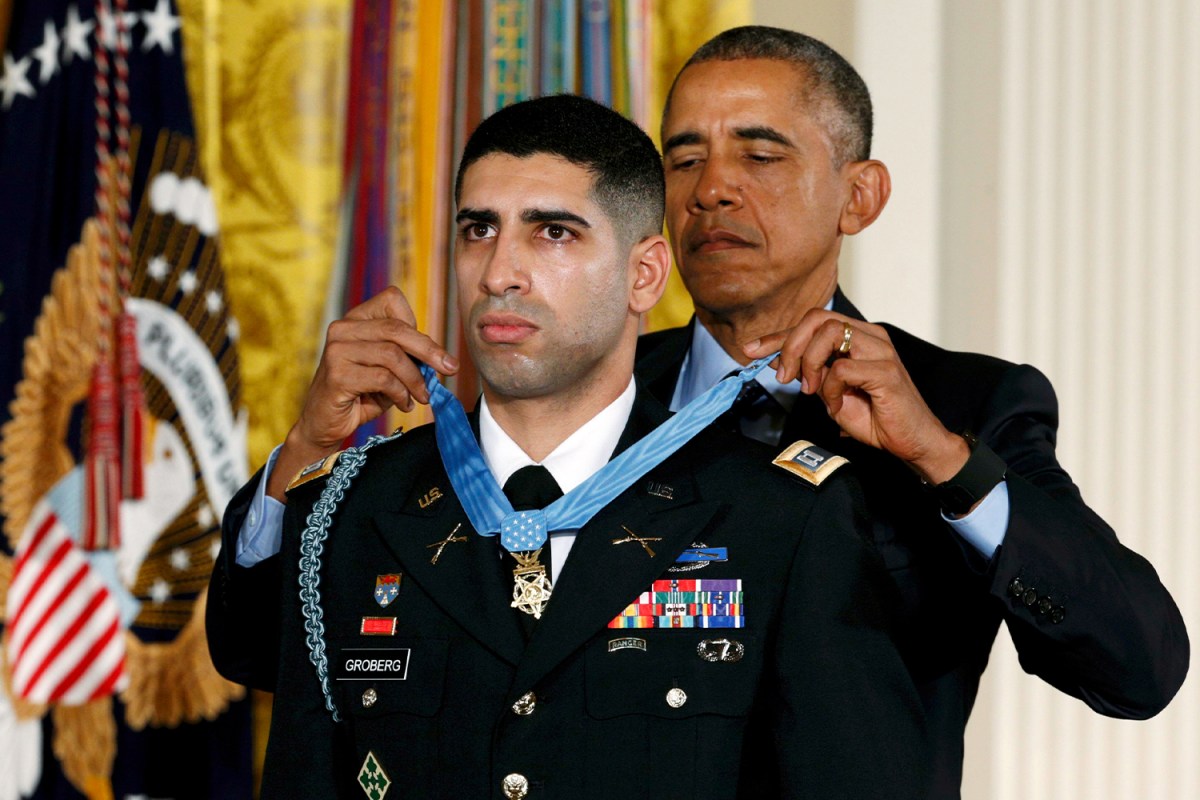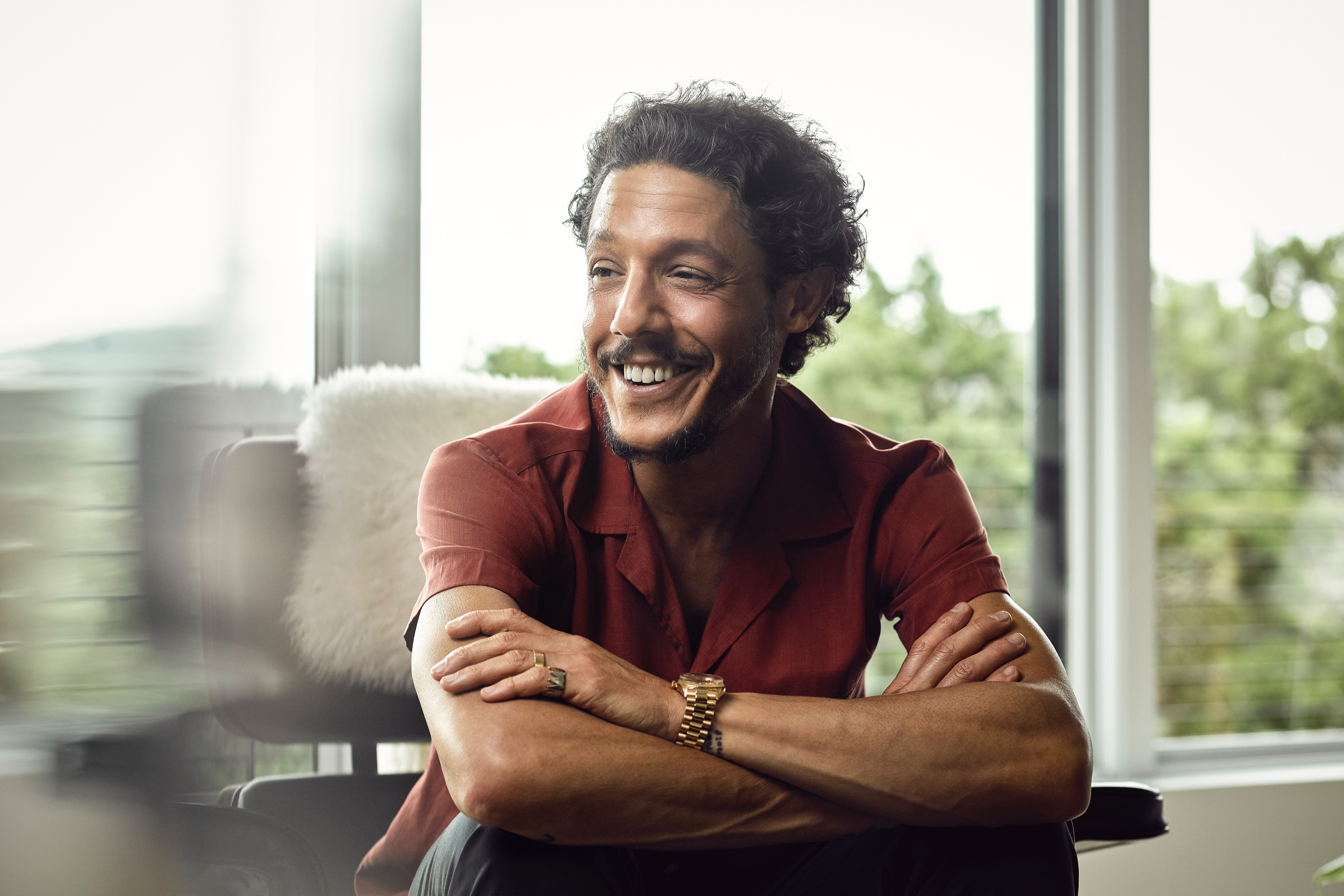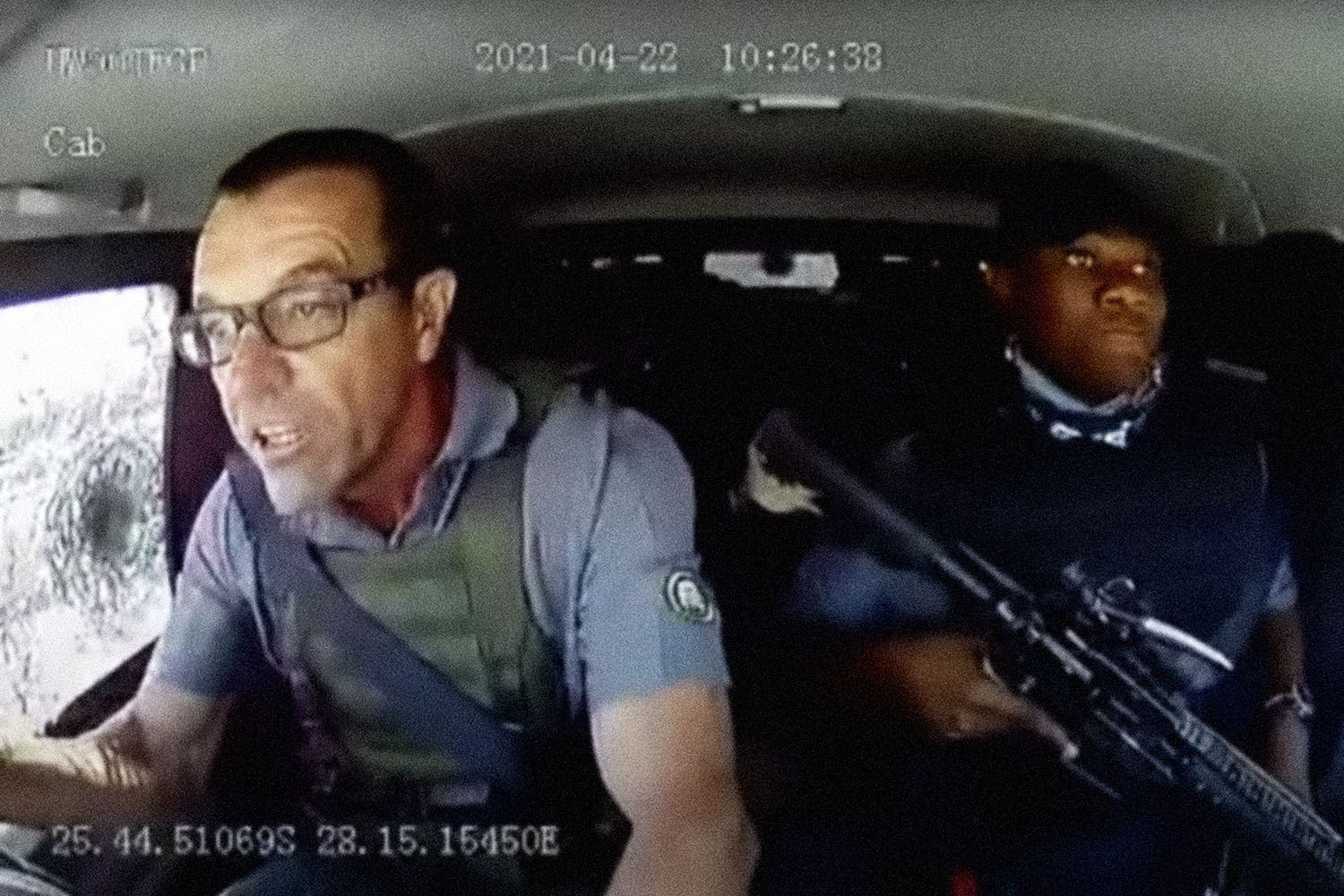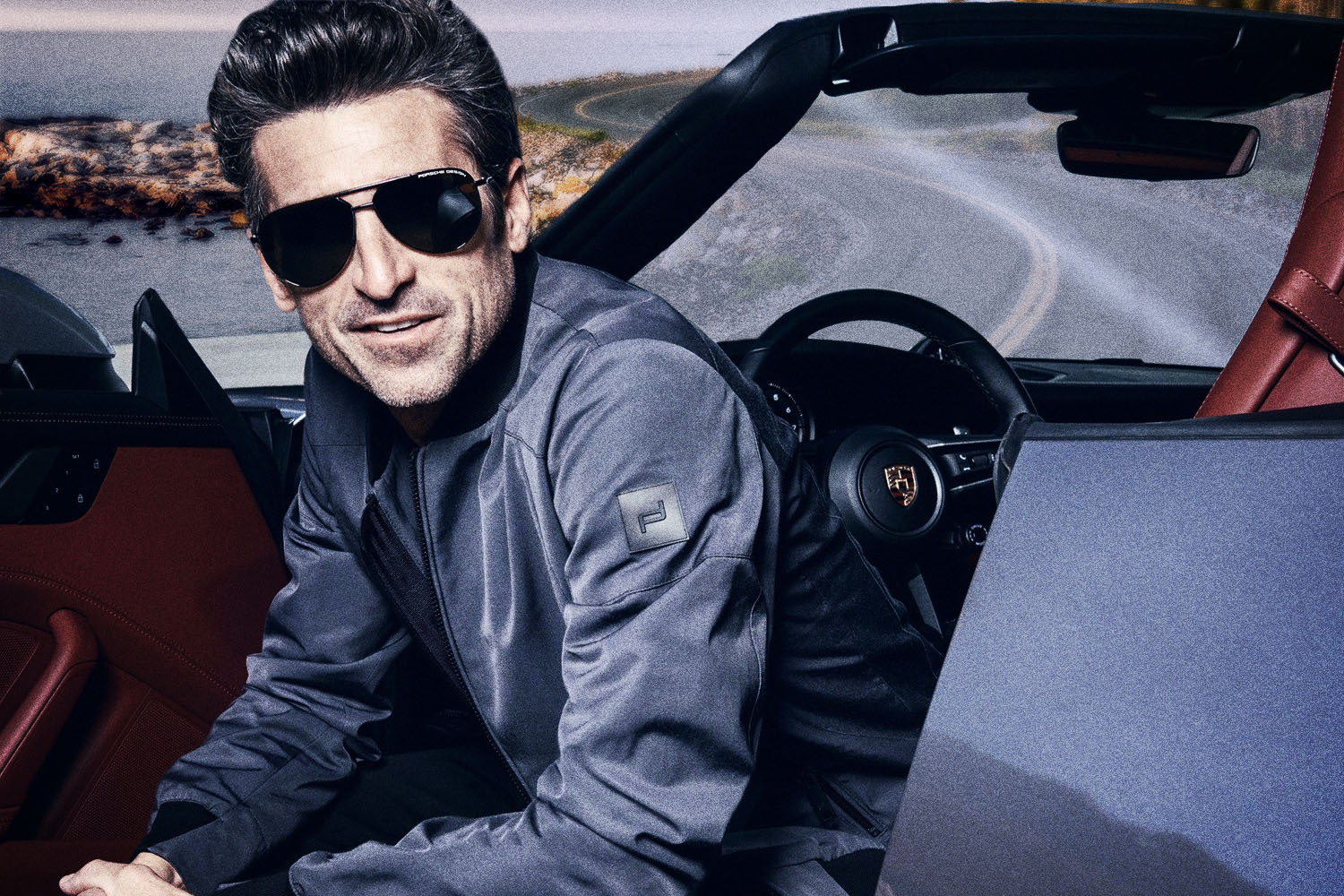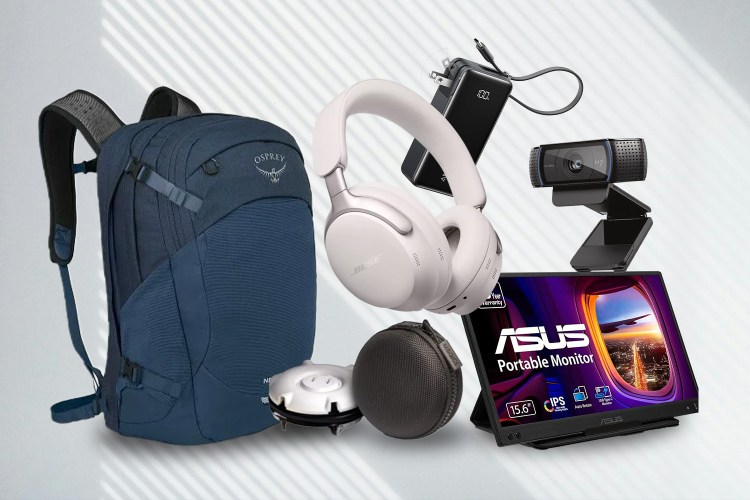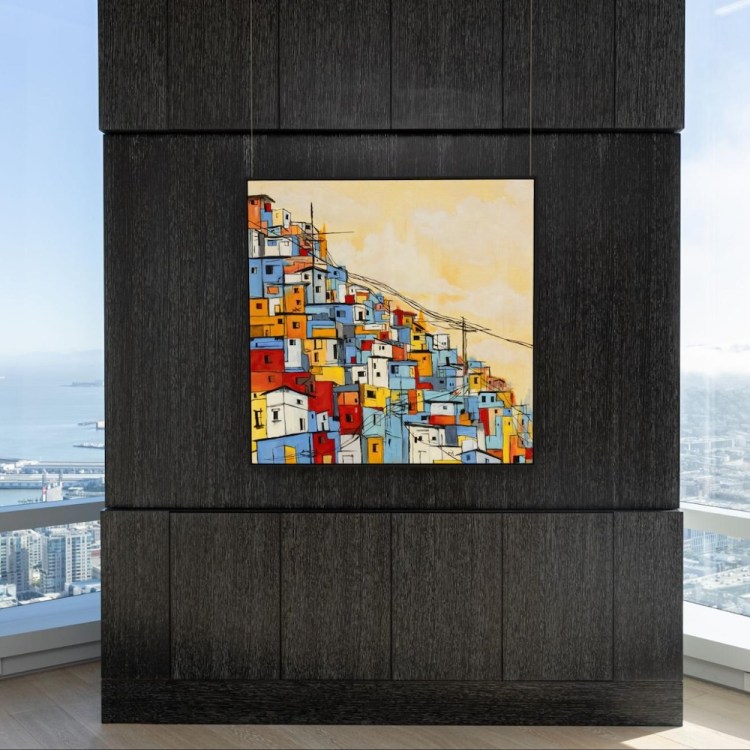On August 8, 2012, U.S. Army Capt. Florent “Flo” Groberg was deployed to the Kunar Province as a perusal security detachment commander for Task Force Mountain Warrior. Several years into his military career already, he was brought in to help run protection for coalition and Afghan National Army personnel, including principles for both forces. It was on one of these patrols, escorting a group of 28 from Forward Operating Base Fiaz to the provincial governor’s compound in Asadabad, where his team was attacked by two suicide bombers.
Groberg tackled the first one, causing both attackers to detonate before reaching their planned targets, and though four lives were lost, many more were saved. For his actions that day, Groberg received the Medal of Honor, the highest military decoration. These days, he works with organizations like the Call of Duty Endowment to share the lessons learned during his military career, and memorialize his fallen brothers.
We recently had the chance to sit down with Groberg to talk about his years in the service, his ongoing partnership with Call of Duty and the work he does to this day to help veterans transition back into civilian life.
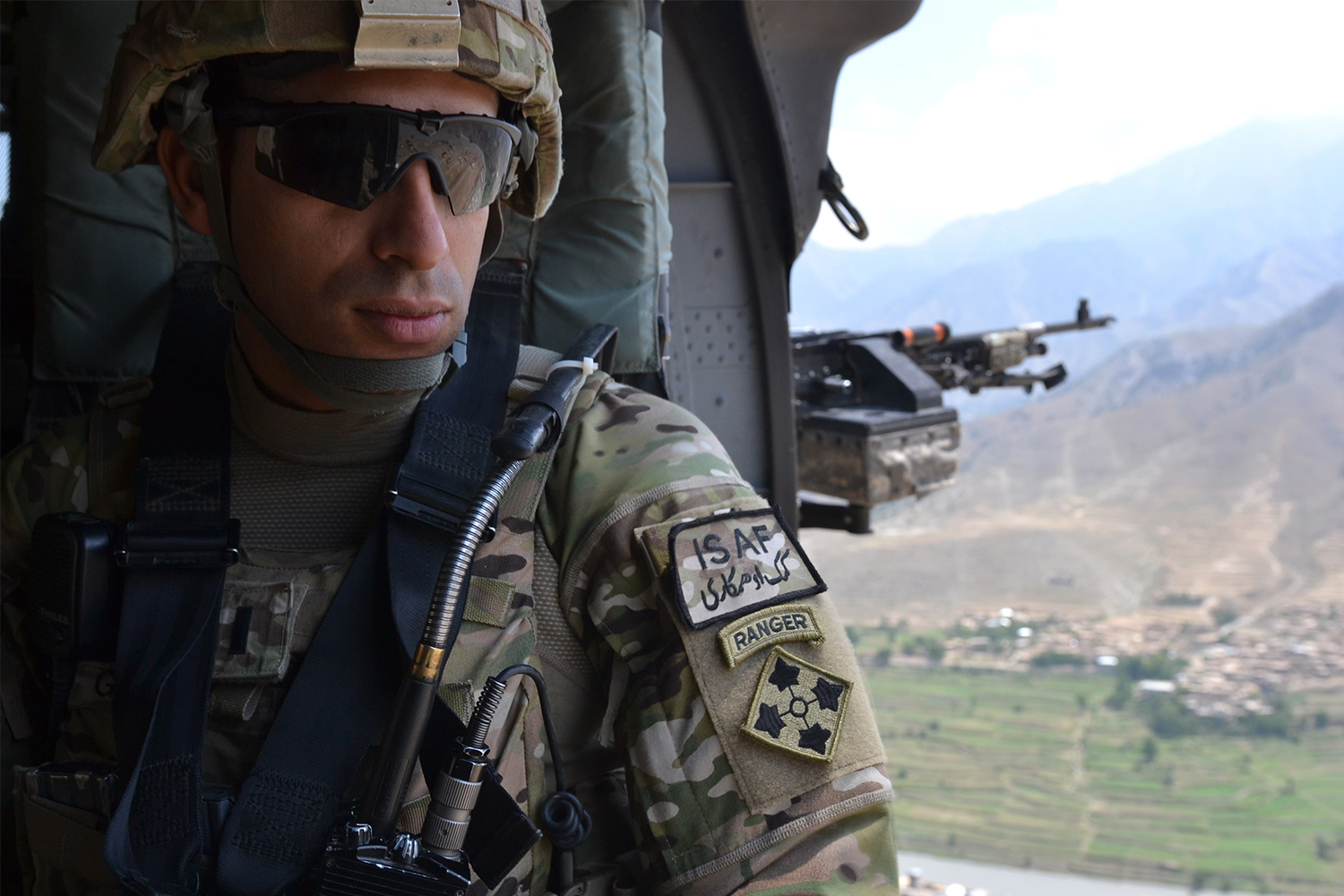
InsideHook: How did you come to the decision to join the military? What was your personal call of duty?
Florent Groberg: My uncle, who I loved dearly, was killed by a terrorist organization in 1996. That was back when I was 12 years old, and was when I first felt the need to serve. I immigrated to this country when I was young, and became a naturalized citizen in 2001. A few months later, 9/11 happened, perpetrated by the same organization that killed my uncle. I knew after that that I needed to serve. There were a lot of people I deployed with who were there for the same reasons. On top of all of that, every single male in my family has served in some sort of military, whether in Algeria, France or the U.S.
What did you find most memorable about the enlistment process?
I didn’t realize at the time that I had to renounce my French citizenship to serve, which meant that I had to wait longer than I was anticipating to enlist. It was a hindrance to me being allowed to get top secret clearance, and it took a year and a half to get it sorted. I was shocked, frustrated and upset, but I think it taught me a lot about patience, which is a pretty important virtue in the military. There is a saying that is used a lot in there, which is “hurry up and wait.”
How did you fare in basic training and boot camp?
I reported to basic training on July 1, 2008, out of Fort Benning in Georgia. I will tell you what, I was the happiest guy out there. I think that actually pissed off a lot of people in basic, because I was fired up every single day. I was excited to do the work. Not to sound cocky, but I was never nervous about the physical element of being in the military. I was an athlete all through school. I could run for miles and I could do a lot of push-ups. That part was easy. I was more concerned about understanding the doctrine and the processes in certain scenarios. That is where my attention was directed.
I don’t believe there is anything hard about being in the military. All you need to do is listen to instructions, execute on those instructions, don’t be a shit bag, and trust your training. More than likely, that is your path to the best outcomes. I think by following those principles I was able to have a pretty successful career in the military, putting aside the day that I earned the Medal of Honor, because I don’t believe that day represents a success. It wasn’t for a success in my military career; it [just] represents my actions on a specific day.
What did you feel when it came time to actually deploy?
I honestly couldn’t wait. I had trained a large amount for that moment. There was a bit of fear going in, not of combat, but more of not being the right kind of leader. I was given a command post in a different country, and I had gone through my training very quickly. I just hoped it wasn’t too quick, but I found out once we got on the ground that I was prepared.
The moment those first bullets and RPGs come by your head, and you are surrounded by a bunch of badasses, it is the most fun time ever. Of course it quickly becomes the worst times you can imagine when one of your friends get hurt. It is hard to really explain what it all feels like when it is going right, though. I try to describe it, and my wife has helped me process a lot of it, but I still find that I probably fall short of really conveying how it feels.
Post military, you have done a lot for the community, one of the more recent projects being a partnership package with Call of Duty Endowment, with your own bundle available in the game. How long have you played the game?
I have been playing the franchise since the very first game. I personally think the best is the original Modern Warfare. I was pretty good at it. I have been gaming forever. I went as far as to be in a gaming “clan” and was looking into building my own server for the game, holding practices with my crew. I made time to game, even while I was a Division I athlete and working around 30 hours a week.
The first scenes from that WWII era just grabbed me, there were some crazy visuals and it was just off to the races from there. The game itself was incredible, but what I really loved was getting to play with my friends. I like to be competitive, that is when I have the most fun, and getting to throw down with my crew was just awesome.
I don’t have the time to play as much as I would like to these days. If I have an opportunity to put an hour or two in at the end of the day, I really enjoy it. I find it to be a stress release. It has been really interesting to watch the whole landscape of gaming and competitive gaming evolve. I have been able to hop into a few tournaments like one that [professional gamer and Twitch streamer] Nickmercs did where I played with pros and UFC fighters like Max Holloway, who is actually crazy good.
So how did it feel when you started working with Call of Duty Endowment?
I was thrilled when they reached out to me. The idea of helping create a character based off of myself, and especially the ability to do it for charity, was mind-blowing in the best way. It is definitely a weird, nerdy dream come true, one that I never knew I had. I have trouble actually believing it is an actual thing even now.
It all started with the CEO of Call of Duty Endowment, Dan Goldenberg, and we were coming up with the idea to put a special weapon in the COD store. I agreed and we were moving forward on it, and that’s when Dan came right back to me and said, “I think we can go even bigger.” He wanted to create a playable character who would be wearing a kit based on what I actually wore while serving.
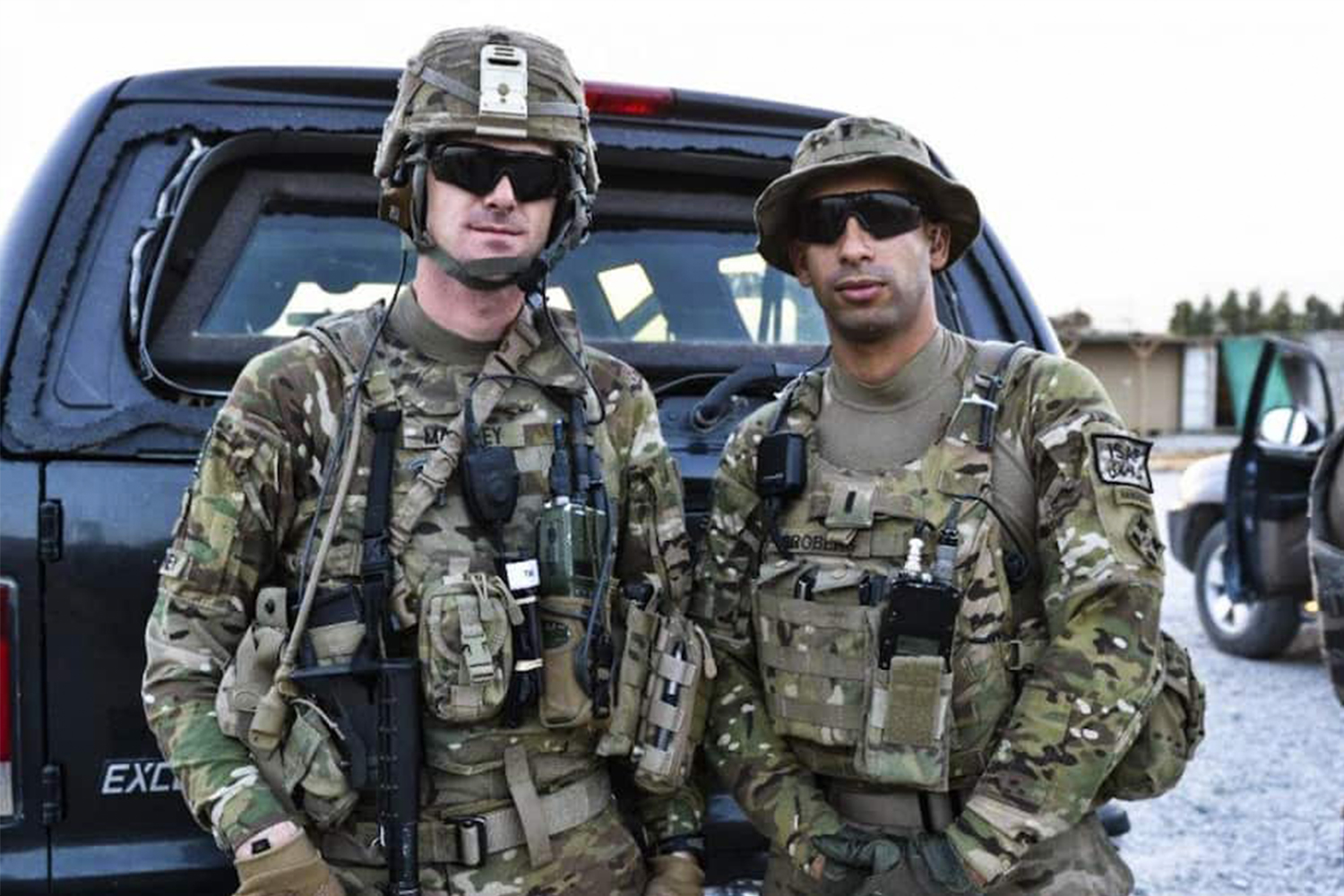
We made it as accurate and authentic as possible, without completely using my likeness in the game. They didn’t necessarily want to have a Medal of Honor recipient being killed thousands of times a day in a game, so it was important to be a little generic. I had the opportunity to connect with the game’s graphic designers and developers. I sent them a bunch of actual photos of me with my kit on while I was deployed. I showed them everything, from what my gun looked like to how I wore my gear.
It was probably about 40 hours of my life, but for them it took months to design everything in game, and I really respect the fact that that was done all for the sake of charity to benefit our veterans. The package is in the store for $9.99, and every penny goes to benefit the endowment, to help veterans transitioning out of the military and into meaningful civilian careers.
Is there a special element of the bundle that you are especially please with how it came out?
I like the simplicity of the whole thing, because we don’t dress for attention while at war. This is how we truly dress, and it looks good because we look good. That is why the game and the Army are good at what they do, because the deepest investment goes into the movement and the weapon systems.
I especially like how the rifle came out, and no one really knows this, but we put the date of August 8, 2012 etched on the gun. That date is a tribute to my four guys who didn’t come back home after the events of that day where I earned the Medal of Honor.
There was a lot of bravery shown on that day. Looking back, what gave you the courage to act in the way that you did, which no doubt saved many lives?
For me, it just came down to me doing my job. We were there to escort American and Afghani military personnel, and protect them. There was a diversion made, and that is when I noticed the individual running at our patrol. I yelled at first, and then I ran at him. I didn’t have time to consider any “what ifs” and when I saw that he was wearing a suicide vest, I knew I had to get him as far from my guys as possible. So with full force I jumped on him and shoved him away from our people.
People ask what made me act the way I did, and really it just came down to doing my job and protecting my brothers. I don’t remember the blast, I was thrown 20 feet away and completely knocked out. I was missing a chunk of my leg when I woke up, but all I cared about was my brothers. It hit me hard when I found I had lost four guys, Command Sergeant Griffin, Major Kennedy, Major Gray and Ragaei Adbelfattah. So any chance to memorialize their sacrifice, like working with the Endowment, is important to me.
Being someone who not only served, but earned the nation’s highest military honor in Afghanistan, how does it feel to see the troops starting the process of withdrawing out of the region?
I think there are a lot of us in the military who have different opinions about the withdrawal. I can’t really say without knowing the full details of the plan, and I can assure you I don’t know them. In the end, I just hope that we don’t leave it in a way that all the work and sacrifice that was made over there was for naught. I have hope that the administration will do right by that.
The more pressing matter to me personally has been to see the Afghan interpreters who helped us getting out of the country safely, which this administration has promised. They were in the same danger as us the whole way through, and sometimes even more, because they faced this danger at home. For every action that I did during my military career, that people may call brave, there was an interpreter there with me. Even that day in August. They helped keep us alive, and it is our responsibility to protect them as well.
This article was featured in the InsideHook newsletter. Sign up now.
